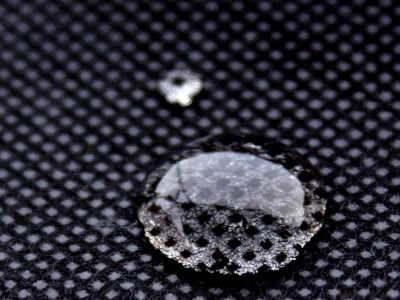Successfully decomposes plastic using simple, inexpensive catalyst and air

A team of chemists from Northwestern University has developed a new, simple way to use moisture from the air to break down plastic waste.
Thermodynamically leveraged solventless aerobic deconstruction of polyethylene-terephthalate plastics over a single-site molybdenum-dioxo catalyst - Green Chemistry (RSC Publishing)

Scientists break down plastic using a simple, inexpensive catalyst and air
https://phys.org/news/2025-03-scientists-plastic-simple-inexpensive-catalyst.html
Polyethylene terephthalate (PET), frequently used in food packaging and beverage bottles, accounts for 12% of all plastics used worldwide. PET is a major contributor to plastic pollution in the environment because it is difficult to decompose. After use, PET ends up in landfills, where it breaks down over time into tiny microplastics and nanoplastics that end up in wastewater and waterways, polluting the environment.
That's why finding new ways to recycle PET is so desirable. Existing methods for breaking down plastics are problematic, requiring very high temperatures, large amounts of energy, or using solvents that produce harmful by-products. Existing methods use expensive catalysts, such as platinum or palladium, which are also toxic and produce harmful waste.

A team of chemists at Northwestern University has developed a way to break down plastic that is safer, cleaner, cheaper and more sustainable than existing methods for recycling it. Their method was just published in
A team of chemists at Northwestern University has developed a method to break down plastics that is non-toxic, environmentally friendly, and solvent-free. The new method uses an inexpensive catalyst to break down the bonds in PET, the most common polyester plastic. Then, by simply exposing the pieces to ambient air and using the moisture in the air, the PET is converted into monomers (a key building block of plastics). This allows the monomers to be recycled into new PET products or other more valuable materials.

'The United States has the highest per capita plastic pollution in the world, and only 5% of plastic is recycled,' said Northwestern University's Yossi Kratish, who wrote the paper on the new plastic decomposition method. 'This means that there is a desperate need for better technology that can process various types of plastic waste. Most existing technologies simply melt PET bottles and downcycle them into lower-quality materials. What's particularly interesting about our research is that we've used moisture from the air to break down plastic, creating a very clean and selective process. By recovering the monomers that are the basic building blocks of PET, it's possible to recycle PET or upcycle it into even more valuable materials.'
'Our research offers a sustainable and efficient solution to one of the world's most pressing environmental problems: plastic waste,' said Naveen Malik, one of the study's lead authors. 'While traditional recycling methods often produce harmful by-products such as waste salts and require significant energy and chemical inputs, our new plastic decomposition method is a solvent-free process that utilizes trace amounts of moisture in the air, making it not only environmentally friendly but also highly practical for real-world applications.'
Related Posts:
in Science, Posted by logu_ii







